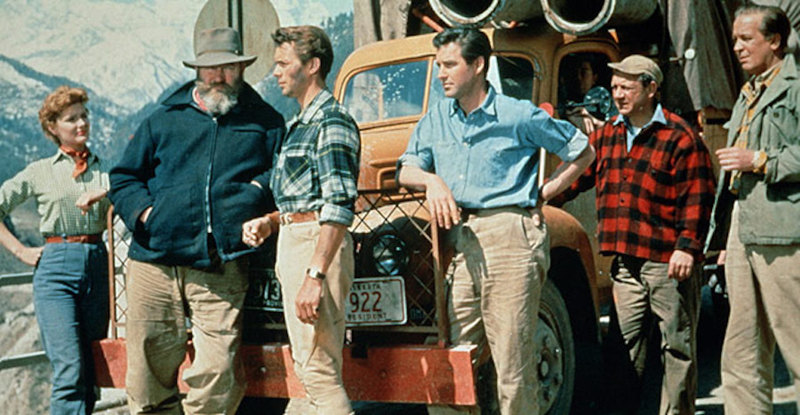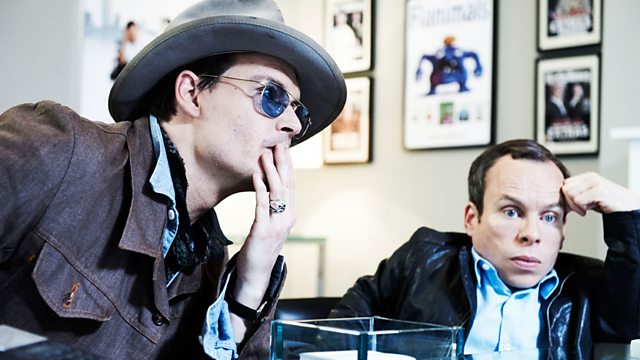Like most twelve year-old boys, Ivan (Nikolai Burlyaev) thinks he knows everything; unlike most twelve year-old boys, he has good reason to believe so.
Coming of age in the heart of WW2, Ivan has already witnessed a lifetime of sorrow, and has steeled himself to expect still more. Wearing his tragedies like unofficial medals of honor, Ivan demands to be treated like an adult and his resolve wears down even the most battle-hardened soldiers. The adults, who have endured unspeakable losses of their own, adopt various protective stances towards the boy, some promising to adopt him after the war, all concerned with his well-being. They try to convince him to leave the front lines and attend military school instead. Ivan will have none of it. Barely skin-and-bones, he can burrow his away across enemy lines and back by avenues the heftier adults can’t negotiate, and Ivan insists that the unit employ his unique skills as a scout. If they try to send him away, he vows that he will run off and join the partisans instead. And why not? The boy is certain he has nothing left to lose. He is mistaken.
“Ivan’s Childhood” (1962) was the debut feature of Andrei Tarkovsky, and though the project did not originate with him (the film had been stalled in development at Mosfilm for some time before he was hired to complete it) it bears all the characteristics of the great Russian director’s signature style. One does not write about Andrei Tarkovsky for very long without trotting out the term “poetic” and his first film is fully infused with the poetic realism that defined his work. The film places as much emphasis on objects as on plot or character, foregrounding bleach-white birch trees and pendulous droplets of water that serve both as symbols and aesthetic experiences in their own right; Tarkovsky’s films are potent sensory evocations.
The film flows from location to location with little concern for orientation (don’t look for many establishing shots), and between reality and dreams with somewhat clearer demarcation. Ivan is tough-as-nails but occasionally needs to retreat to a more idyllic mental space where he still plays under the watchful eye of his loving mother either before the war or before the war strikes home. He can only preserve his private sanctuary for so long before reality intrudes and destroys, however. The fluid, agile camerawork by cinematographer Vadim Yusov heightens the subjective feel of many scenes, pirouetting among the birch trees or skimming a river right along with the characters. The high contrast black-and-white images more than merit the sometimes overused descriptor “starkly beautiful.”
Tarkovsky’s debut reveals a filmmaker itching to push the boundaries of the medium his very first time out of the box. Not every experiment works, and I can’t go as far as those who claim “Ivan’s Childhood” is the equivalent of Tarkovsky’s later masterpieces like “Solaris” (1972) and “Stalker” (1979), but it’s one heck of a starting point. It’s beautiful, it’s devastating, and it’s achingly sincere.
Video:
The film is presented in its original 1.33:1 aspect ratio. Unfortunately, I don’t have the SD release from 2007 as a comparison point, but this 1080p transfer is remarkably sharp, and the renowned shots of the stark white birch trees against a steel-gray sky are simply magnificent here. Image detail is sharp throughout, particularly in the dimly lit, heavily shadowed scenes. Detail in close-ups is quite striking as well.
Audio:
The Blu-ray is presented with a linear PCM Mono audio track. The lossless audio is as clear and crisp as you would expect from Criterion, if not overly dynamic. Optional English subtitles support the Russian audio.
Extras:
The extras have been imported from the 2007 SD.
“Life as a Dream” (31 min.) is a 2007 interview with scholar Vida T. Johnson. Johnson provides context for the film both in terms of the short-lived Soviet “thaw” and as the trailblazing work for Tarkovsky’s career.
The disc also includes a 2007 interview with actor Nikolai Burlyaev and a 2007 interview with cinematographer Vadim Yusov. One drawback to these interviews is that they are chopped up into short snippets of a couple minutes apiece (5 for the Burlyaev, 4 for the Yusov) and cannot be played as one piece, so you have to go back to the Extras Menu to move on to the next short piece. Each of the interviews totals up to approximately 11 minutes.
The 24-page insert booklet includes an insightful, densely-packed essay by film professor Dina Iordanova, a 1962 article by Tarkovsky about his debut film, and the short poem “Ivan’s Willow” by the director’s father Arseny Tarkovsky.
Film Value:
Criterion’s Blu-ray release of “Ivan’s Childhood” is a little short on extras, but it’s a pristine high-def transfer of the debut feature of one of Russia’s greatest filmmakers. For anyone who wants to see where the path to “Solaris” and beyond began, this is a great pick up.


